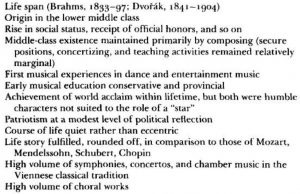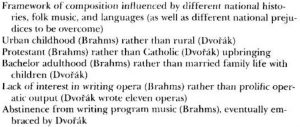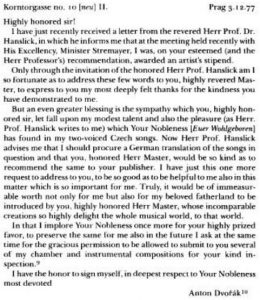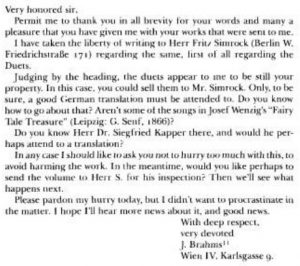Every composer has a beginning and time where they are relatively unknown. This was the case for Antonin Dvorak, who ended up being both a European and American influencer in music. Up until his thirties, Dvorak, who was born and raised in a small Czech town, was relatively unknown in musical circles. In 1877, however, Johannes Brahms recommended one of Dvorak’s works to his own publisher.1
The piece was one from the grants Dvorak had applied for, which were focused on helping poorer composers get their start as composers. Remarkably, Antonin Dvorak clearly benefited indirectly from the grants he received.
Below is Dvorak’s response to hearing about Brahms’ recommendation.2
The letter is very thankful throughout, as one would think Dvorak might be at this time in his life. This letter, in fact, is the beginning of a relationship between two great composers, as Brahms continued to help Dvorak find his voice and eventually become the Dvorak that is well known in Europe and the US, and likely other parts of the world. This letter is remarkable to have been kept considering its historical significance. If not for this relationship, Dvorak’s music might not have impacted American music to the extent that it did.
Commentary on this letter contextualizes it well, but that can also be a lazy excuse to not read this letter critically and follow a primary source reading guide. While the pages surrounding this letter talk much about Dvorak’s and Brahms’ relationship, they don’t mention American music, which Dvorak later came to know and influence.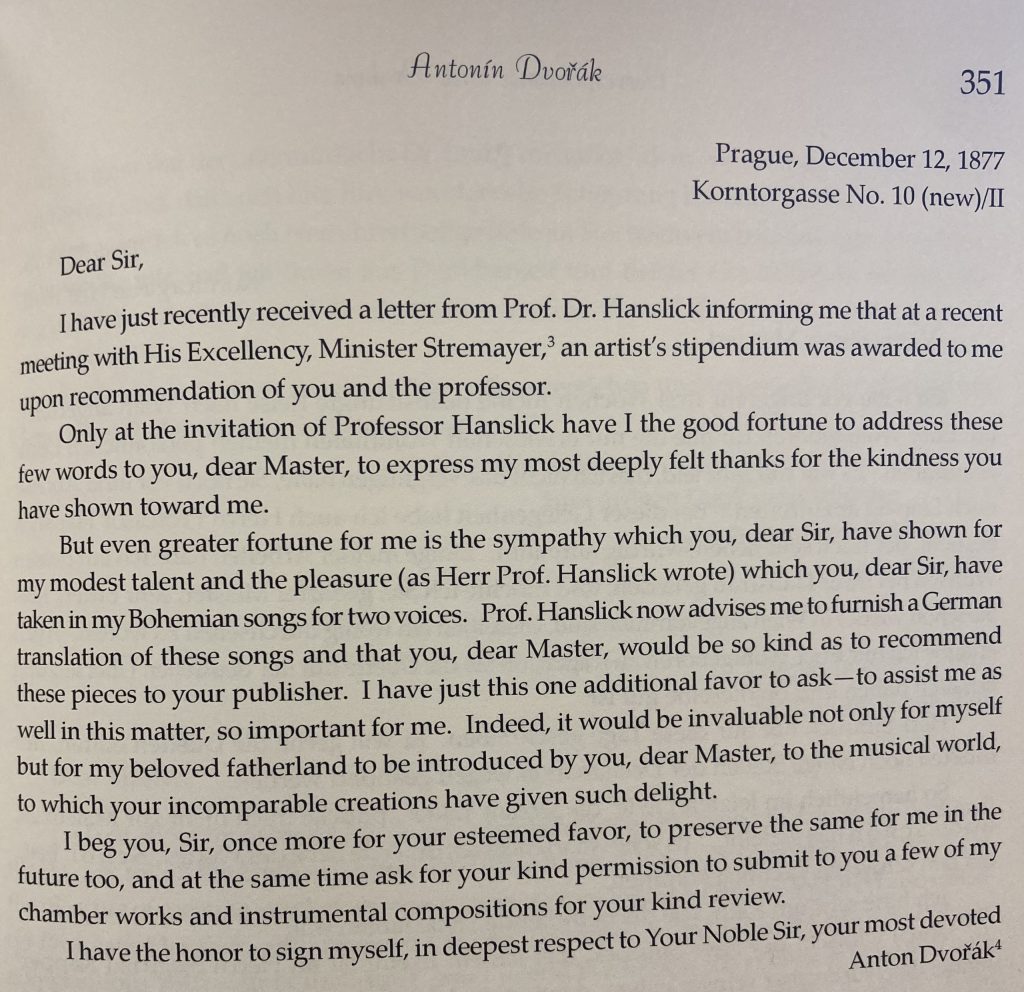 Many books and articles mention that Dvorak’s New World Symphony transformed American music, but a certain New York Times article debunks this theory.3
Many books and articles mention that Dvorak’s New World Symphony transformed American music, but a certain New York Times article debunks this theory.3
While Dvorak’s symphony surely had its influence, this article especially discredits the idea that Dvorak was the first to say that American music would have its unique characteristic in African American melodies. While there are many other details on composers who pioneered this view before Dvorak, a singular message can be taken away by the reader: the way music developed was not due to one person, but rather through a complicated journey. It just so happens that Brahms’ recommendation of Dvorak to his publisher was one piece of a large puzzle of the slow transformation of American music.
1. Beverage, David R., “antonin Dvorak”, Dvorak American Heritage Association, https://www.dvoraknyc.org/bio#:~:text=In%20December%201877%20Brahms%20took,to%20texts%20of%20Moravian%20folk


